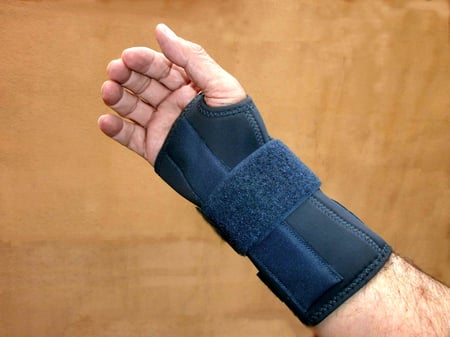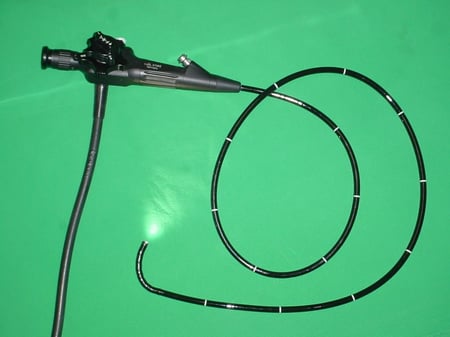Injury in Endoscopists: Scope at Your Own Risk
by Larissa Biggers, on August 31, 2018
The safety and comfort of patients undergoing colonoscopy is of paramount importance to hospitals, providers, and of course, the patients themselves. But what about the physicians performing the procedure? It might be news to those outside the field, but gastroenterologists are commonly injured on the job. A review of current literature found that musculoskeletal complaints are extremely common among GIs; the incidence of pain and injuries ranges from 29% up to 89%. Another study indicated that 45% of endoscopists undergo physical therapy to combat pain, 26.8% get steroid injections, and 13.3% require surgery.

Why is the injury rate so extreme? High procedure volume, stressful repetitive movement, and the unpredictable nature of colonoscopy are all to blame.
Lots of Colonoscopies
According to a recent American Society for Gastrointestinal Endoscopy (ASGE) survey, GIs spend 43% of their time performing endoscopy, and the more procedures, the higher the risk for musculoskeletal pain and injury. In the US, they perform an average of 12 endoscopies and 22 colonoscopies per week, although the volume can be much higher. GIs in busy practices routinely perform 40 to 50 procedures per week. And since the American Cancer Society issued new guidelines to begin colorectal cancer (CRC) screening at age 45 instead of 50, these numbers will only grow larger.
Scoping: Science + Technique
Although GI endoscopists are rigorously trained in colonoscopy, they cannot avoid risk factors for overuse injury: repetitive hand motion; high hand forces; and awkward wrist, shoulder, and neck postures. This is because colonoscopy can be a technically difficult procedure. The World Journal of Gastroenterology provides examples of basic skills GIs must master (tip deflection, push forward and pull back, torque, and more) and advanced skills (jiggling and shaking, right and left turn shortening, hooking, and slide-by technique), all of which can cause MSK injury, especially when repeated day after day over a number of years. Jerome Waye, internationally lauded as an expert endoscopist, notes that “the ability to torque or twist the colonoscope shaft with the right hand is the most important maneuver for colonoscopy.”
Every Colon is Different
The physical maneuvers (specifically push and torque force) required to perform a straightforward colonoscopy routinely exceed high-risk thresholds. When procedures are lengthy or complicated, this problem is compounded. “Difficult colonoscopies,” in which endoscopists have trouble getting through the entire colon or cannot do so, happen 10 to 20% of the time. The difficulty occurs primarily because of scope looping in angular or redundant colons. To mitigate looping, endoscopists must exert additional force and employ high-stress techniques. According to a study published in Clinical Endoscopy, right-arm joint stress associated with scope looping on the sigmoid colon is equal to lifting an 11-pound bowling ball with a string
Toughing It Out
CRC is the third leading cause of cancer-related deaths in men and women in the United States, but it is highly treatable. Colonoscopy is the only CRC screening method that can find, treat, and prevent colon cancer. When endoscopists feel pain, they may be loath to admit it; their physical health is essential to performing their job effectively. Because of their specific skill set and the demand for their services, GIs are a commodity. Consider the recent measures for protecting NFL players from injury. Don’t GIs deserve as much?
For instance, limitations on procedure volume and readily available CME on ergonomics in endoscopy could go a long way toward lowering GI injury rates. In addition, when possible, endoscopists should use ergonomically sensitive scopes (for example, those with adjustable flexibility), and medical devices that reduce looping and make insertion easier.



